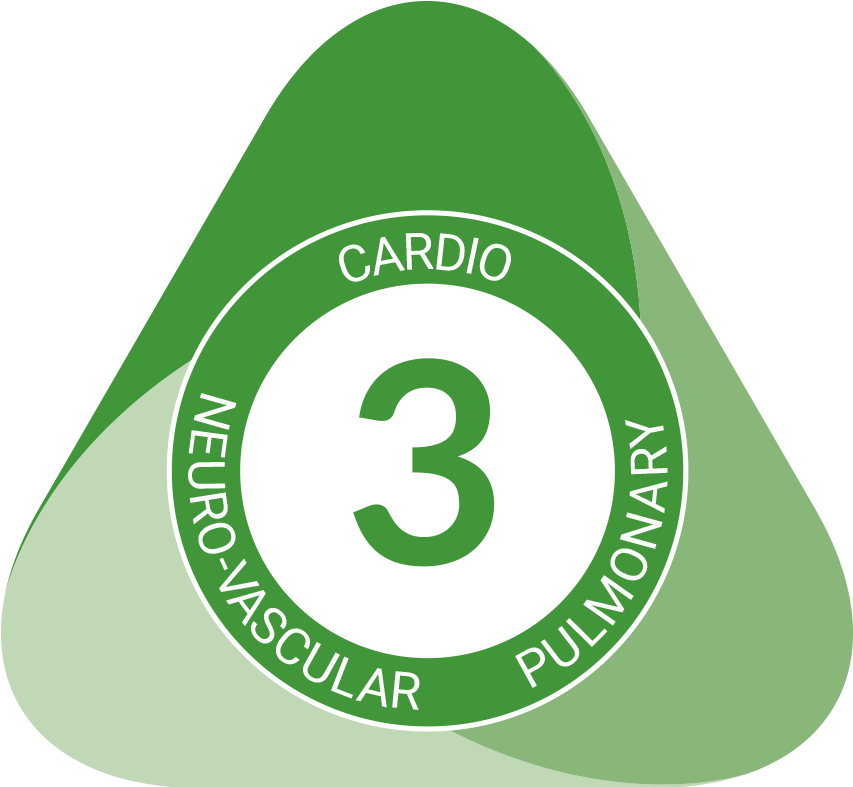
This TRIAD includes the cardiopulmonary unit, autonomic nervous system, and the vascular tree. This Triad reflects the relationship of mind and heart, mediated by the respiratory cycle.
When Triad 3 is balanced, the individual has plenty of metabolic resiliency and strength to meet the challenges of life. When levels are not in sync one can become inflamed and spasmodic.
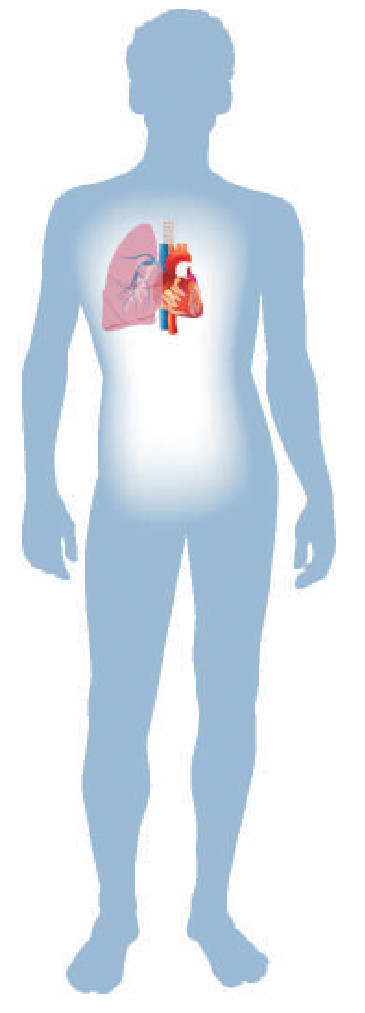
SUMMARY
The cardiopulmonary system comprises organs and structures relating to both the circulatory system and the respiratory system, including the heart, lungs, pulmonary artery and vein, aorta, trachea and bronchi. These organs are located in the thoracic cavity of your body.
FUNCTION
The function of the cardiopulmonary system is to deliver oxygen and nourishment to the cells of the body and to remove waste in the form of carbon dioxide. The heart generates the pressure needed to perform this operation. This pressure allows us to breathe and keeps blood flowing throughout the body.
IMPORTANCE
The cardiopulmonary system relates to all other organ systems in the body and to the body’s metabolic health. Imbalances in metabolism can lead to cardiopulmonary problems. Cardiovascular disease (CVD), or heart disease, is the number one cause of death in the United States, with over 70 million Americans have cardiovascular problems.
Chronic stress, lack of quality sleep, immune imbalances, imbalances in brain chemistry, gut health, environmental factors like smoking and pollution, weight gain/obesity, chronic inflammation, hormonal imbalances, insulin resistance, high blood pressure, increased oxidative stress and damage, cholesterol and blood sugar imbalances, poor diet and lack of exercise all can lead to heart, lung and blood vessel problems.
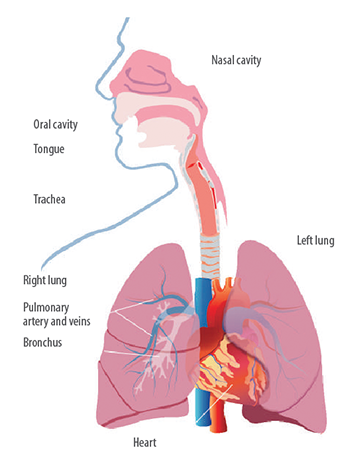
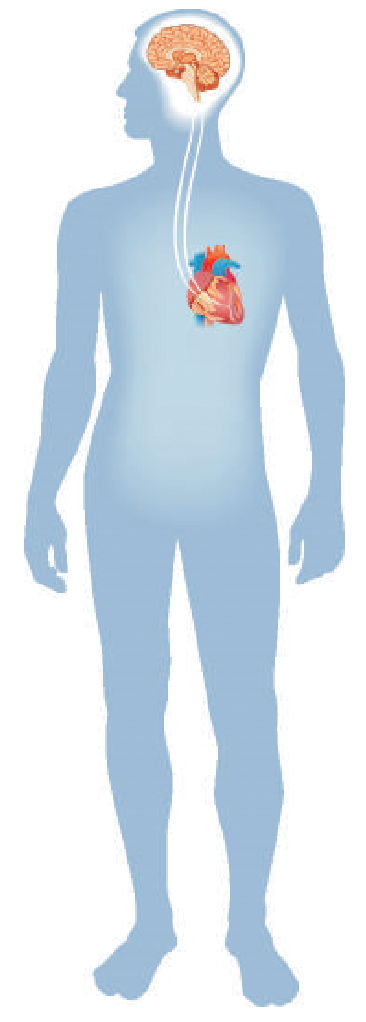
The brain and the heart are connected by the vagus nerve, which serves as the “highway” for transmitting and regulating nerve impulses from the brain to the heart.
IMPORTANCE
Your heart communicates with your brain through 4 ways:
Depression, mood disorders and decreased cognition (memory and ability to think clearly) can occur when the heart is compromised. Up to 60% of individuals that have a heart attack experience symptoms of depression within the 12 months, and depression doubles the death rate in the months following a heart attack. Depression decreases the tone of your vagal nerve, which increases inflammation and coagulation, leading to cardiovascular problems.
Studies report that the risk of developing heart disease is significantly greater in those who vent their anger as well as for those who suppress anger. A lower heart rate is reported to lead to a longer lifespan. Also, the heart rate variability (HRV), or change in your heart rate, is important.
Exercise can increase heart rate variability. Someone with a low HRV has an increased risk of heart disease and death.

The vagus nerve is known as the 10th cranial nerve. The vagus nerve extends from the medulla (the lower part of the brainstem that controls involuntary functions like heart rate and breathing), down along the carotid artery/jugular vein in the neck to the neck, chest and abdomen.
The vascular system or blood vessels are included in the circulatory system with the heart. The vascular system consists of your arteries, which carries blood away from your heart that is rich in nutrients and oxygen for your cells, and your veins, which carry carbon dioxide and cellular debris away from the cells back to the heart. You have about 6 quarts (5.6 liters) of blood in your body, and it travels about 12,000 miles a day through your blood vessels.
Vagal tone refers to the internal biological processes of the vagal nerve. The vagus nerve helps regulate largely subconscious processes in the body, including heart rate, movement of your GI tract for digestion, sweating and muscle movements in the mouth including speech. Stimulation of the vagus nerve slows heart rate and reduces blood pressure and can help control seizures.
The purpose of the vascular system is to pump blood, delivering nutrients to the cells and removing toxins. The vascular system transports hormones, blood clotting factors, cells of the immune system and fats/lipids among other things. As you age and/or have metabolic imbalances like high blood pressure, your vascular system becomes stiffer and your heart has to pump harder.
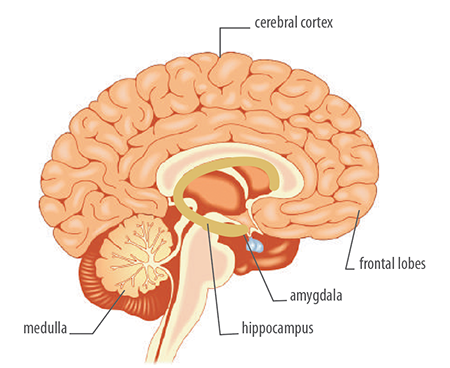
1. Labs & Lifestyle Questionnaire
Take our signature comprehensive lab panel and lifestyle questionnaire to identify where your systems are currently out of balance.
2. Personalized Supplement Program
Based on your results take pharmaceutical grade and clinically tested supplements that are compounded specifically to address each TRIAD.
3. Metabolic Code Diet
Based on your profile you will get a detailed Metabolic Code Diet program that will significantly benefit your results and help you reach a healthy weight.
Thee most comprehensive personal assessment available.
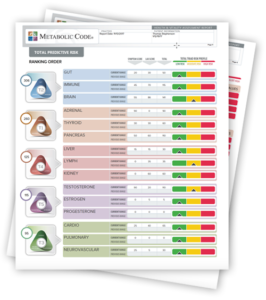
Metabolic Code Enterprises, Inc.
Download a sample Metabolic Code® Report Here to see how you too can transform your lifestyle.
Metabolic Code® is a personalized health evaluation program that creates a precise plan of action for people to live and feel better.
Our cloud-based point-of-care system makes it easy to manage patient information, generate personalized wellness plans, and deliver health products right to your patient’s doorstep.
Experience what so many others have done to rapidly improve their health and vitality long-term. We have lifestyle programs created for people with all types of goals and dietary needs.